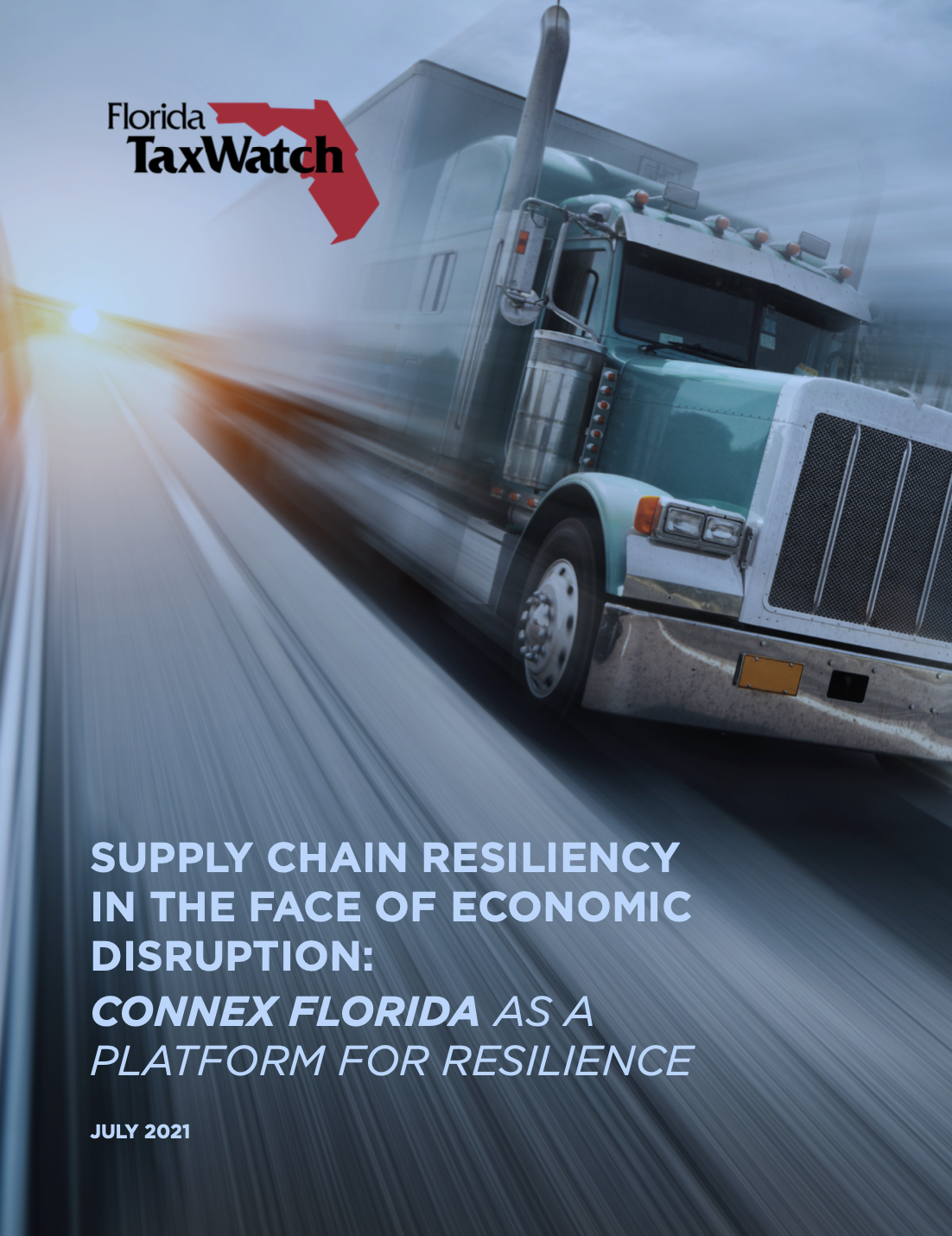Supply Chain Resiliency in the Face of Economic Disruption: Connex Florida as a Platform for Resilience

Supply chains are expansive networks of suppliers, manufacturers, distributors, and retailers that facilitate the movement of products to consumers. Given their complexity and scale, supply chains are prone to major disruptions at any point in the process. Major events—such as pandemics, natural disasters, geopolitical conflicts, trade disputes, and cyberattacks—can severely interrupt functions and impede the timely delivery of products to end-users. As witnessed over the past few years, especially throughout the COVID-19 pandemic, supply chain disruptions in distant portions of the world can have a cascading effect on Florida’s economy. In future years, companies across industries can expect supply chain disruptions to occur every 3.7 years, leading to financial losses that erase half a year’s worth of profits, on average, over ten years.
The growing prevalence of disruptions indicates a pressing need for supply chain resiliency—the ability to be prepared for unforeseen disruptions, responding and recovering swiftly to mitigate consequences. A major event can disrupt supply chains in three ways:
- Demand Shift: A sudden surge in customers’ willingness and ability to purchase particular goods.
- Capacity Reductions: A reduction in the production or transportation process that results when there is a lack of plant, power, or people.
- Communication Disruption: An interruption in the normal channel of information up and down the supply chain when critical infrastructure fails.
Examples include:
- The COVID-19 pandemic
- The Texas Ice Storm in February 2021
- Hurricane Irma in 2017
In the state of Florida, one tool emerges as a prime example for leaders seeking to strengthen resiliency measures: Connex Florida. Connex Florida makes use of existing technology to both enhance connection between manufacturers and provides broader diversification of suppliers in the state. Connex is a statewide supply chain connection platform for Florida-based manufacturers to engage in the marketplace and streamline connections to other businesses. Developed in partnership between FloridaMakes, Associated Industries of Florida, and Space Florida, Connex Florida maintains a manufacturing database with information about a manufacturer’s specific production capabilities. Additionally, the platform helps Florida manufacturers identify existing supply chain vulnerabilities through visualizations and assists businesses in diversifying their respective supplier bases. Connex Florida is also interoperable with a national search database of manufacturers that can further expand opportunities.
Connex Florida has proven itself to yield enormous value to the Florida economy during times of crisis and expansion, benefitting economic growth through improved company performance and resilience. Therefore the Florida Legislature should support the current operations of the Connex Florida system while also supporting future expansions to include more manufacturers and tools. In addition: the manufacturing industry should identify additional ways to attract small and large manufacturers to the Connex Florida system in order to improve engagement, collaboration, and connectivity.